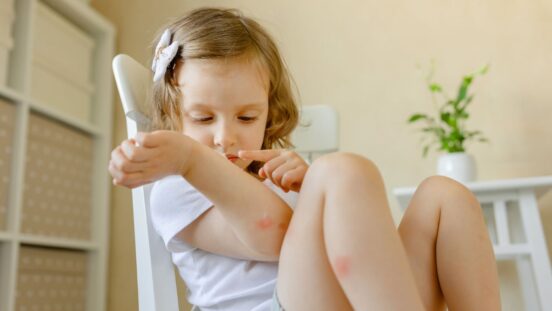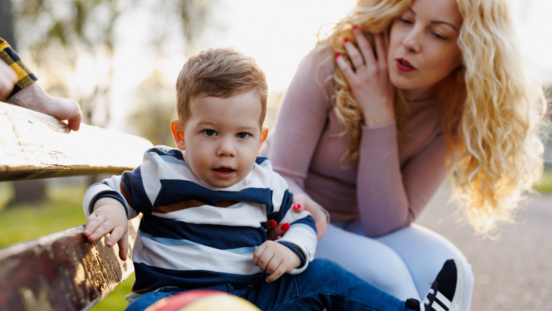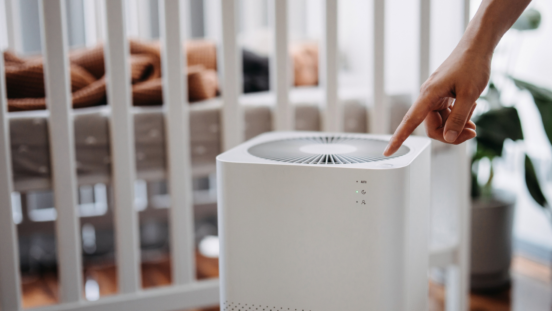How to prevent a peanut allergy and how to safely introduce allergy foods to babies
Around 3 in 100 children in Australia have a peanut allergy.
Peanut allergy is one of the most common food allergies in childhood. With around three in 100 children in Australia being allergic to peanuts or treen nuts. The term ‘tree nut’ refers to nuts such as almonds, brazil nuts, cashews, hazelnuts, macadamias, pecans, pistachios and walnuts.
With this in mind, the idea of stopping this allergy in its tracks is a welcome one.
Around 20 percent of children grow out of their peanut allergy and for some, peanut allergies appear later in life.
Guidelines from the Australasian Society of Clinical Immunology and Allergy (ASCIA) say introducing kids to certain foods can stop them from developing an allergic reaction. The guidelines state: “For all infants, including those with severe eczema and/or existing food allergy, peanut and other solid foods should be introduced around 6 months (not before 4 months) and in the first 12 months, when developmentally ready, as recommended in the ASCIA guidelines for infant feeding and allergy prevention.”
The concept is that the earlier children are introduced to foods they may be allergic to, the bigger chance they have to stave off an allergy.
Guidelines recommend all babies be given common allergy causing foods by 12 months of age, including peanut, in an age appropriate form such as smooth peanut butter/paste (not whole nuts or pieces). ASCIA says this includes babies who have eczema (very dry skin), another food allergy, or a family member with food allergy, even though they may have a higher chance of developing food allergy.
While parents are concerned about offering peanut to their babies, it is best to offer your little one smooth peanut butter/ paste regularly (twice weekly), starting before 12 months of age. Delayed introduction has been shown to increase the chance of developing food allergy.
How should peanut be introduced?
Introduce a smooth peanut butter/paste in small amounts to start with, as you would with other foods. You may choose to do this during meals soon after waking, so that you can watch your baby and respond if they have an allergic reaction. If you require some guidance you may wish to:
- Mix a small amount (¼ teaspoon), of hard-boiled egg or peanut butter/paste into your baby’s usual food (such as vegetable puree).
- Gradually increase the amount if your baby is not having any allergic reactions, for example ½ teaspoon the next time.
- You can rub a small amount of the food inside your baby’s lip as a starting point. If there is no allergic reaction after a few minutes, you can start giving small amounts of the food as described above.
- Never smear or rub food on your baby’s skin, as this will not help to identify possible food allergies and may increase the risk of the baby developing an allergy to that food.

Guidelines recommend all babies be given common allergy causing foods by 12 months of age.
According to The Royal Children’s Hospital Melbourne, a child who is allergic to peanuts or other nuts will only have a mild reaction. However, peanuts and tree nuts (especially cashews) are a common cause of anaphylaxis. Anaphylaxis is the most severe form of an allergic reaction, and is life threatening.
Allergies to peanuts and tree nuts are more common in people who have other allergic conditions, such as hay fever, asthma and eczema. Children with a nut allergy may also be allergic to other foods such as milk, eggs, shellfish and other types of nut.
What are the symptoms of a peanut allergy?
An allergic reaction will include one or more of these symptoms, and it is possible that a number of them will happen at the same time:
- hives, welts or wheals (a red, lumpy rash, like mosquito bites)
- a tingling feeling in or around the mouth
- stomach pain, vomiting and/or diarrhea (loose poo)
- facial swelling.
The Royal Children’s Hospital of Melbourne advises parents take their child to a GP the first time they have child has a mild to moderate allergic reaction to peanuts or other nuts. The doctor will confirm whether your child had an allergic reaction and advise you how to treat the reaction next time it happens. You may be referred to an allergy specialist to confirm the nut allergy and to advise on management and future monitoring.

Children with a nut allergy may also be allergic to other foods such as milk, eggs, shellfish and other types of nut.
Severe allergic reaction (anaphylaxis)
Anaphylaxis is a severe allergic reaction that involves a person’s breathing and/or circulation (heart and blood pressure). Any of the following symptoms indicates your child is having an anaphylactic reaction. The above symptoms of a mild to moderate reaction may or may not also be present:
- difficulty with breathing and/or noisy breathing
- wheeze or persistent cough
- swelling of the tongue
- swelling and/or tightness in the throat
- difficulty talking or hoarse voice
- loss of consciousness or collapse
- becoming pale and floppy (infants/young children).
Call an ambulance immediately if your child has symptoms of anaphylaxis.
Living with a nut allergy
According to Health Direct, if you are allergic to nuts, you must avoid any exposure to them, although it can be very hard to avoid all traces of nuts. In particular:
- Always read food labels.
- Take care with knives and forks, kitchen surfaces, barbecue plates, and shared butter and margarine that might be contaminated.
- Be careful when kissing or hugging someone who has eaten nuts (traces can stay on the hands, lips, teeth, beards and moustaches).
- Take extra care when eating out. Asian foods can be particularly risky, although nuts are also often used in pesto, salad dressings and many other foods, too.
- Always carry a supply of safe food with you when travelling.
- Be careful when eating other nut products — even if you do not think you are allergic to them. You are at increased risk of developing an allergy to a new nut.
- Always carry your adrenaline autoinjector (EpiPen or Anapen) with you.
- Tell others about your allergy and what to do if you are exposed to a nut.
- If in doubt, do not eat the food.
Children should take their own food to school and parties and should not share or swap food with other children. They may need to eat in a separate area from other children who are eating nuts.




